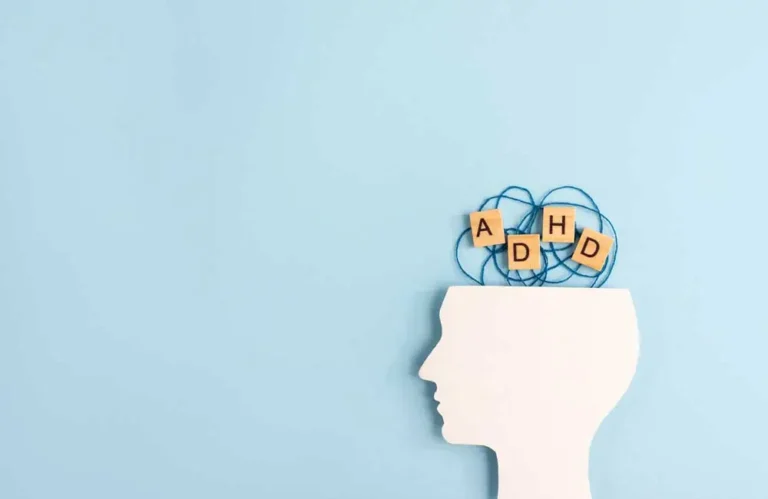Best Mental Health Therapy Near Me in St. Petersburg: A Comprehensive Guide
In today’s fast-paced world, taking care of our mental health is more important than ever. With the rising awareness of mental health issues, many people are turning to the internet to search for “mental health therapy near me,” seeking therapy or counseling to navigate the complexities of life. If you’re located in St. Petersburg, Florida, or surrounding areas like Sarasota and Tampa, and are on the lookout for mental health therapy, you’ve taken the first step towards healing. This comprehensive guide is designed to help you understand the different types of therapy available, how to find the right therapist, and how McNulty Counseling and Wellness can support you on your journey to wellness.
How to Find Therapy or Counseling Near You
Finding the right therapist in St. Petersburg or its vicinity is a crucial step on your mental health journey, and beginning your search with terms like “mental health therapy near me” can guide you to local providers. It’s vital to consider factors such as the therapist’s specialization, therapeutic approach, and how comfortable you feel with them. The advent of virtual counseling has made accessing support from anywhere in Florida more feasible. McNulty Counseling offers a streamlined process to find the right therapist, featuring detailed profiles of their specialties, experiences, and methods. This service allows for tailored searches and the opportunity for initial consultations at no cost, ensuring a compatible match for your unique needs.
Understanding the significance of the relationship between you and your therapist, McNulty Counseling prioritizes matching you with someone who is not only an expert in their field but also passionate about helping their clients. They recognize the impact of previous therapy experiences and strive to build a supportive foundation from the start, aimed at overcoming challenges and fostering mental and physical vitality. This approach highlights the belief that change is always possible, providing a pathway to wellness tailored to the individual needs of those in St. Petersburg and across Florida.
Most Common and Effective Types of Therapy
Several therapy modalities have proven effective in treating various mental health issues. Among the most common and effective types of therapy include Cognitive Behavioral Therapy (CBT), which helps in identifying and changing negative thought patterns, and Dialectical Behavior Therapy (DBT), which focuses on teaching coping skills to manage stress, and emotions, and improve relationships. Other notable mentions include Psychodynamic Therapy, which explores unconscious patterns affecting current behavior, and Family Therapy, ideal for addressing family dynamics and conflicts.
Certainly, McNulty Counseling and Wellness integrates some of the most common and effective therapy modalities into their practice. They provide services such as Anxiety Therapy and Depression Treatment, which often utilize Cognitive Behavioral Therapy (CBT) techniques to help clients change negative thought patterns. Their Marriage and Family Counseling services can encompass aspects of Family Therapy, designed to improve communication and resolve conflicts within family units. While they offer various other specialized services, it’s clear that their approach is to provide a range of effective therapeutic strategies tailored to the individual needs of their client’s mental health therapy near me in St. Petersburg and surrounding areas.

How to Choose the Best Type of Therapy Near Me
These steps will guide you toward choosing a therapy near me that aligns with your personal goals and needs, enhancing your journey toward mental well-being. When choosing the best type of therapy for your needs, it’s helpful to:
- Identify Needs: Understand the nature of your concerns and the mental health challenges you’re facing.
- Explore Options: Research the effectiveness of different therapeutic approaches such as CBT, DBT, or others in relation to your particular issues.
- Get Referrals: Ask for recommendations from medical professionals or individuals whose opinions you trust.
- Consult Therapists: Speak with potential therapists about their methods and how they align with what you’re looking to achieve.
- Assess Personal Challenges: Identify the specific mental health challenges you are facing, whether it’s anxiety, depression, relationship issues, or something else.
- Understand Therapy Types: Familiarize yourself with various therapy modalities such as CBT, DBT, or Family Therapy to understand what might be the best fit for your situation.
- Get Professional Input: Healthcare providers can offer guidance based on their assessment of your needs.
- Consider Therapist Compatibility: Ensure that the therapist’s methods and personality are a good match for you.
- Check Credentials: Verify the therapist’s qualifications and experience, especially for specialized therapies.
- Think About Logistics: Consider the location, scheduling, and whether the therapist offers in-person or virtual sessions.
- Reflect on Goals: Clarify what you hope to achieve through therapy and discuss these goals with potential therapists.
Effective Strategies for Mental Health Improvement
Improving mental health is a multifaceted approach that requires attention to both the body and the mind. Here are an the effective strategies, emphasizing how each contributes to better mental health:
Regular Exercise
Engaging in regular exercise is not just about physical health; it also plays a crucial role in improving mental health. Physical activity releases endorphins, chemicals in your brain that act as natural painkillers and mood elevators. It decreases symptoms of depression, anxiety, and helps to manage stress. Regular exercise also contributes to better sleep patterns and increases self-esteem. Whether it’s a brisk walk, yoga, or more vigorous activities like running or cycling, finding an exercise routine you enjoy can make a significant difference in your mental well-being.
Healthy Eating
What you eat directly affects the structure and function of your brain and, ultimately, your mood. A diet that’s good for your physical health is also good for your mental health. A balanced diet rich in fruits, vegetables, lean protein, and whole grains provides essential nutrients that support brain function and mood regulation. Omega-3 fatty acids, found in fish like salmon, have been linked to decreased rates of depression. Similarly, foods high in antioxidants can help combat oxidative stress and inflammation, which are linked to mood disorders. Moderating sugar and caffeine intake can also stabilize energy levels and mood throughout the day.
Adequate Sleep
Sleep and mental health are closely connected. Lack of sleep can negatively affect your psychological state and mental health, and those with mental health problems are more likely to have insomnia or other sleep disorders. Adults should aim for 7-9 hours of sleep per night. Establishing a regular, calming bedtime routine, reducing screen time before bed, and creating a comfortable sleep environment can enhance sleep quality. Adequate sleep not only helps to improve cognitive function and mood but also plays a role in the healing and repair of your heart and blood vessels, which is essential for overall health.
Mindfulness and Meditation
Mindfulness and meditation practices have been shown to reduce stress, anxiety, and symptoms of depression. These practices involve focusing on the present moment and accepting it without judgment. Mindfulness can be incorporated into daily life through practices like mindful eating, walking, or even mindful breathing exercises. Meditation, particularly mindfulness-based stress reduction (MBSR) and mindfulness-based cognitive therapy (MBCT) can alter emotional responses to stress and negative thinking patterns, promoting a sense of calm and increased emotional well-being. Even a few minutes a day can make a significant difference.
Dedicated healthcare professionals in St. Petersburg work together to improve access to ‘therapy near me’ services for the community.Local Resources for Mental Health in St. Petersburg
St. Petersburg offers a wealth of resources for those seeking mental health support. Local support groups, community centers, and mental health clinics are invaluable resources. Additionally, McNulty Counseling and Wellness provides a wide range of services tailored to meet individual needs, from grief counseling to family therapy, all designed to support residents in St. Petersburg and the surrounding areas.
Conclusion
Seeking therapy is a courageous and important step toward enhancing your mental health. In areas like St. Petersburg, Sarasota, Tampa, and through virtual counseling within Florida, McNulty Counseling and Wellness is committed to offering compassionate, comprehensive mental health services. No matter if you’re facing anxiety, depression, grief, or any other mental health challenge, our team is here to offer support at every stage of your journey. With ‘therapy near me’, you have access to the care and guidance needed to navigate life’s hurdles.
Contact Us:
If you or someone you know is struggling with grief, don't hesitate to reach out to McNulty Counseling and Wellness. Our team is ready to provide the support and guidance you need to navigate this difficult time. Visit our website at mcnultycounseling.com/ to learn more about our services and how we can help you start your healing journey today. You can call or text us at 727-344-9867 or email us at Admin@McNultyCW.com.







